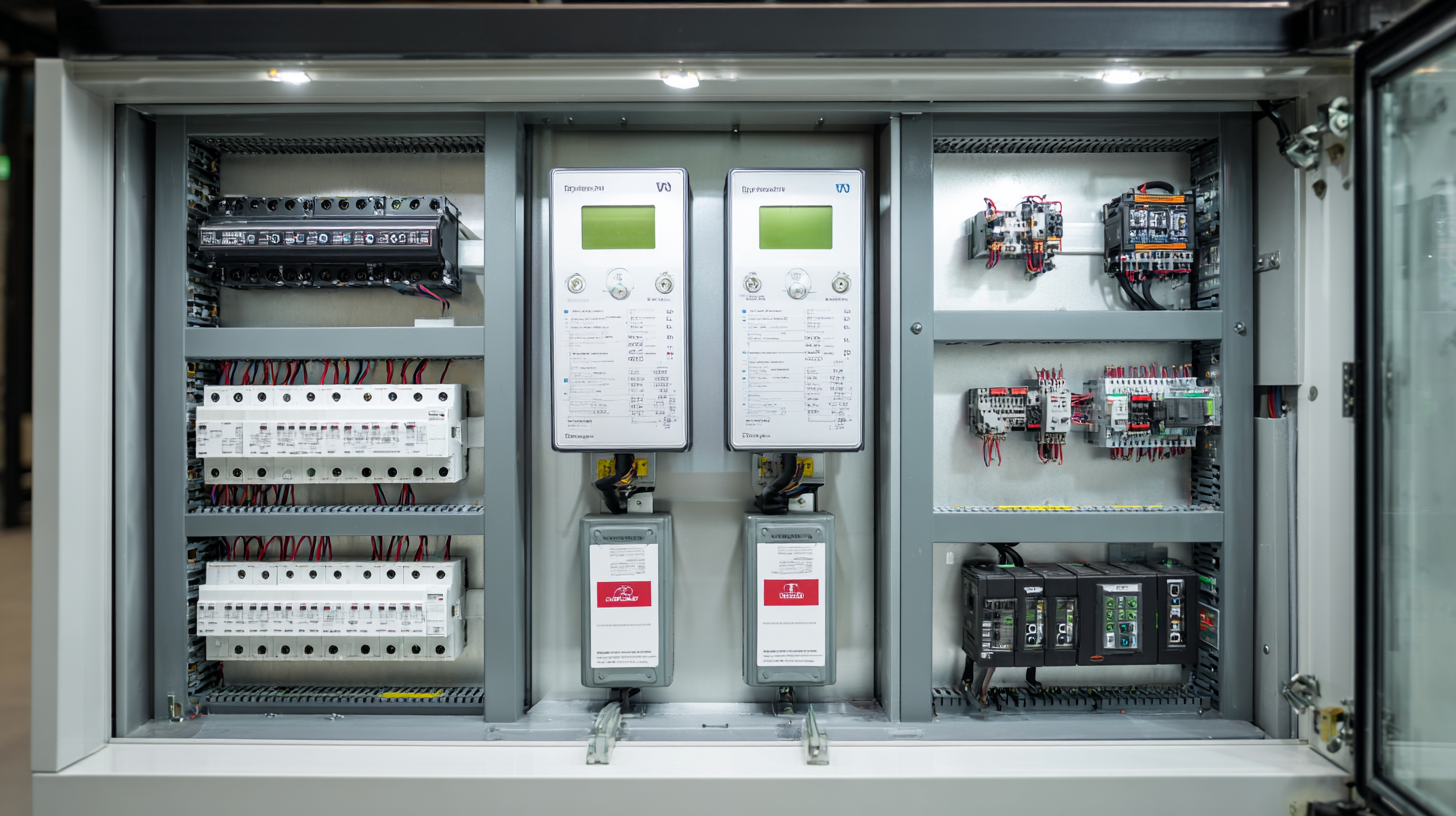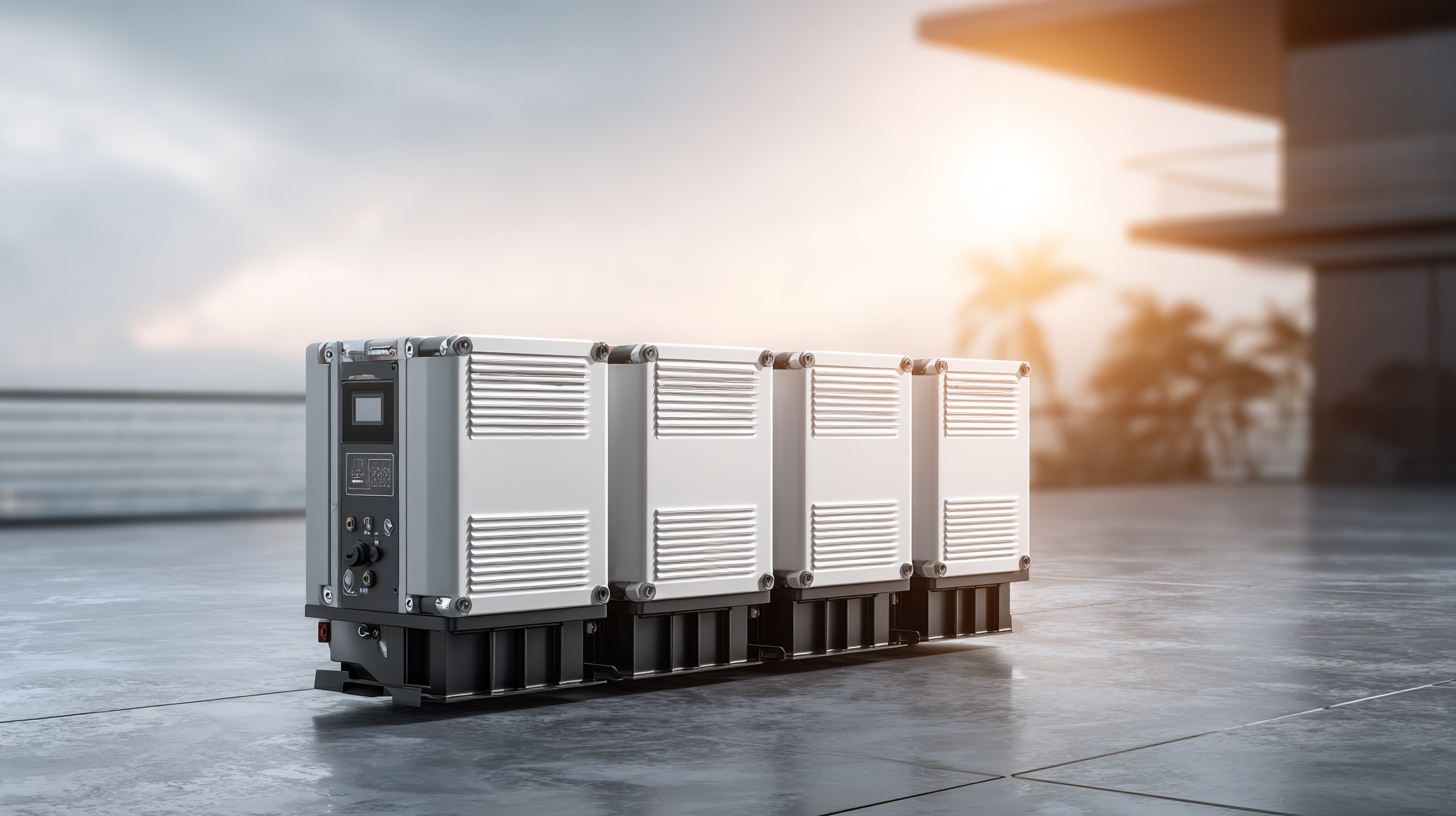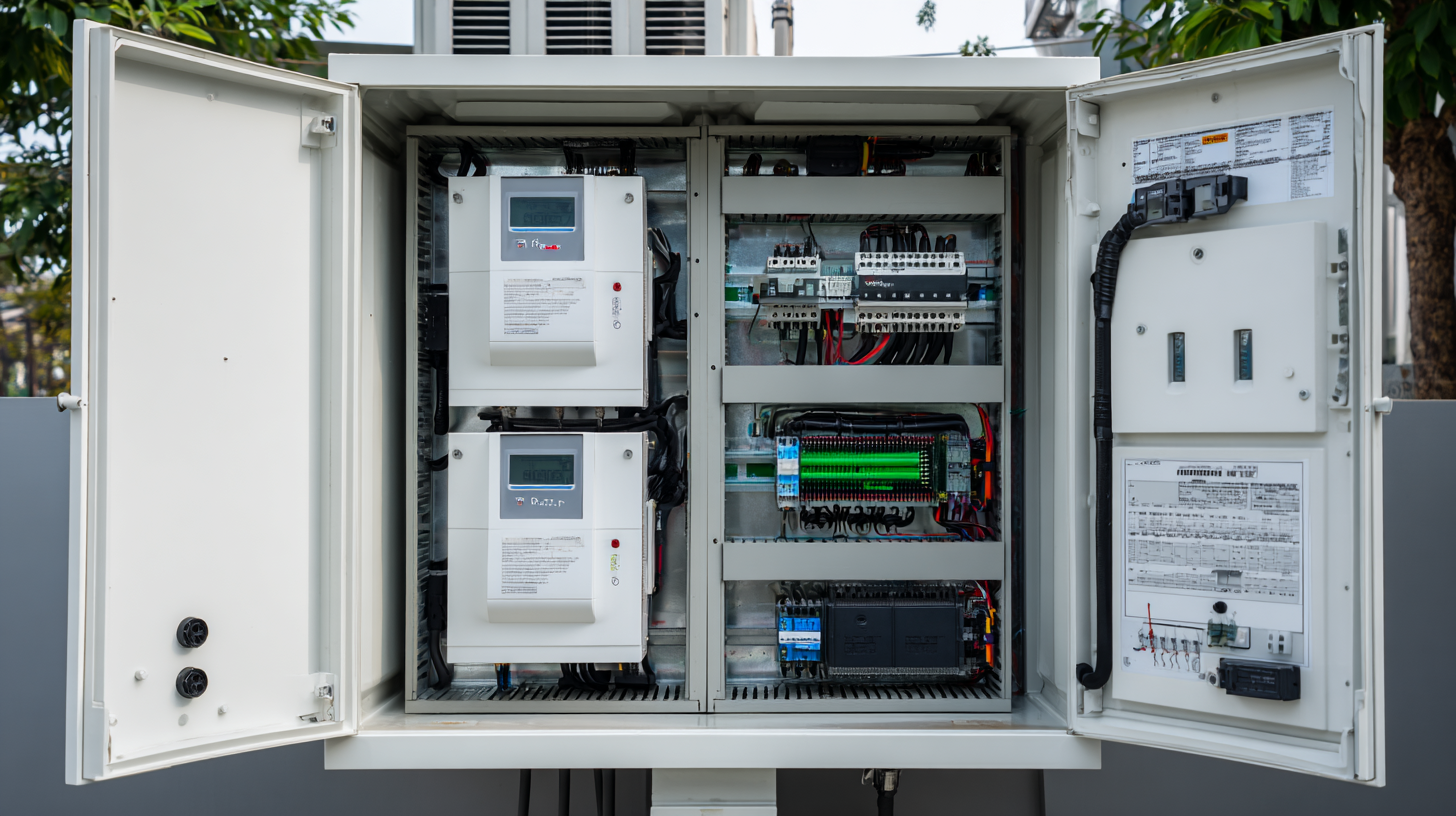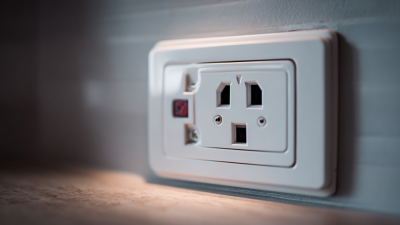
-
Home
-
About Us
-
Products
-
Total Solution
-
News
-
Blog
-
Contact Us
Leave Your Message
-
-
Phone
-
E-mail
-
Whatsapp
-
Whatsapp



In today's rapidly evolving energy landscape, the role of backup inverters has become increasingly pivotal in ensuring a reliable and sustainable power supply. As the world shifts towards renewable energy sources, the demand for efficient energy management systems is more critical than ever.
 Backup inverters serve as essential components that facilitate the smooth transition between grid power and alternative energy sources such as solar panels, providing not only stability but also enhancing energy efficiency during outages or fluctuations. Understanding the intricacies of backup inverters is crucial for both homeowners and businesses looking to optimize their energy solutions.
This article aims to delve into the fundamental aspects of backup inverters, offering insights and practical tips on how to select, install, and maintain them effectively. By harnessing the capabilities of backup inverters, users can ensure uninterrupted power supply, thereby contributing to a more resilient energy future.
Backup inverters serve as essential components that facilitate the smooth transition between grid power and alternative energy sources such as solar panels, providing not only stability but also enhancing energy efficiency during outages or fluctuations. Understanding the intricacies of backup inverters is crucial for both homeowners and businesses looking to optimize their energy solutions.
This article aims to delve into the fundamental aspects of backup inverters, offering insights and practical tips on how to select, install, and maintain them effectively. By harnessing the capabilities of backup inverters, users can ensure uninterrupted power supply, thereby contributing to a more resilient energy future.
Backup inverters play a crucial role in modern renewable energy systems, particularly in maximizing the efficiency and reliability of energy storage solutions. As the global battery storage inverter market continues to expand, valued at approximately
$7.59 billion in 2024 and projected to reach
$15.32 billion by 2030, these devices are becoming indispensable for seamlessly integrating renewable sources, such as solar power, with existing energy systems.
In environments where solar panels operate in tandem with diesel generators, backup inverters optimize energy management strategies significantly. By employing innovative technologies, such as
artificial protozoa optimization, these systems reduce diesel consumption and enhance the performance of photovoltaic/diesel hybrid systems. With the imperative for cleaner energy solutions, the adoption of effective backup inverters is not just a preference but a necessity for achieving
sustainable energy goals in various sectors.
Backup inverters play a crucial role in modern energy solutions, especially as renewable energy sources become more prevalent. These devices are essential for converting the DC power produced by solar panels or batteries into AC power usable by the electrical grid or home appliances. According to a report by the International Renewable Energy Agency (IRENA), the capacity of global solar energy systems is expected to increase significantly, projected to reach 4,700 GW by 2030. This surge in solar installations underscores the importance of efficient backup inverters, which ensure that energy storage systems can seamlessly supply power during outages or peak demand periods.
Modern backup inverters come equipped with advanced features such as grid-tie capabilities, smart monitoring, and energy management systems. These functionalities allow users to optimize energy consumption and support technologies like demand response and time-of-use pricing. A report by the U.S. Department of Energy highlights that integrating smart inverters can enhance grid reliability and efficiency, reducing the overall energy costs for consumers. Furthermore, these inverters often include capabilities for battery storage integration, enabling homes and businesses to harness stored energy when necessary, fostering a more resilient and sustainable energy landscape.
The chart above illustrates key features of modern backup inverters, including their efficiency, cost, warranty duration, weight, and size. Understanding these metrics is crucial for evaluating backup inverter performance in contemporary energy solutions.
Backup inverters play a crucial role in integrating renewable energy sources such as solar and wind. With the growing adoption of hybrid renewable energy systems (HRES), the demand for efficient backup inverters has surged. The global battery storage inverter market, valued at $7.59 billion in 2024, is projected to experience significant growth, reaching $15.32 billion by 2032. This growth is propelled by advancements in technologies capable of effectively managing energy storage and distribution.
Recent innovations in backup inverters underline their importance in developing reliable energy solutions. For example, the introduction of advanced battery inverters designed for scalable applications enhances the integration of solar and wind technologies. Additionally, the emergence of whole-home backup systems signifies a shift toward ensuring energy independence for consumers. As hybrid systems become more prevalent, optimizing their performance will be essential. Research indicates that effective integration can lead to improved efficiency and cost-effectiveness, emphasizing the role of backup inverters in a sustainable energy future.
Backup inverters have emerged as a pivotal component in modern energy solutions, particularly when comparing their efficacy and functionality against traditional inverter technologies. According to a report by the International Renewable Energy Agency (IRENA), the adoption of backup inverters in residential solar systems has increased by over 30% in the last two years, reflecting a significant shift towards systems that can provide electricity during outages. This trend highlights the growing consumer preference for energy resilience and independence, which is often supported by the enhanced capabilities of backup inverters to manage energy storage devices, such as batteries.

The landscape of backup inverters is evolving rapidly, driven by an increasing demand for energy resilience in the face of unpredictable power usage patterns and the integration of renewable energy sources. As the global energy storage power conversion system (PCS) market is projected to grow significantly, reaching approximately USD 5 billion by 2024, backup inverters will play a crucial role in this transformation. These devices not only optimize the efficiency of energy storage systems but also enhance the reliability of power supply in microgrid applications, making them indispensable for both residential and industrial settings.
Future trends in backup inverter development are closely tied to advancements in energy storage technologies. A comprehensive survey highlights how the integration of energy storage solutions is critical for achieving optimal performance and reliable energy management. With microgrids gaining traction as a solution for enhancing energy resilience, the development of smarter, more efficient backup inverters is essential. As industries increasingly adopt AI-driven data centers, which demand sustainable energy infrastructure, the need for robust backup systems becomes even more pronounced, ensuring that energy demands can be met consistently, regardless of external challenges.






